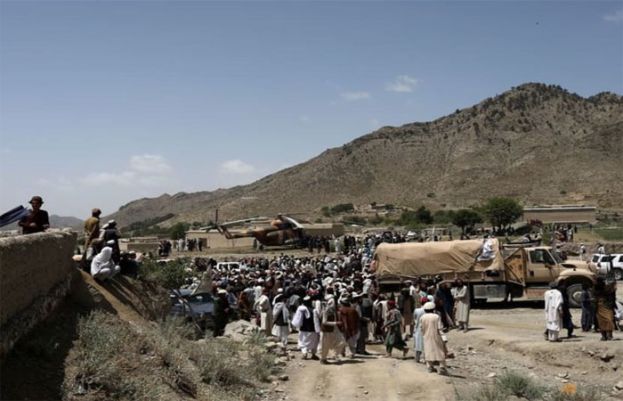
Authorities earlier ended the search in remote southeastern mountains for survivors from the 6.1 magnitude earthquake that struck early on Wednesday, about 160 km (100 miles) southeast of Kabul, near the Pakistani border.
The US Geological Survey said the Friday earthquake, in almost exactly the same place, was magnitude 4.3.
About 2,000 people were injured and 10,000 houses were partially or completely destroyed in the Wednesday earthquake, Mohammad Nassim Haqqani, a spokesperson for the disaster ministry, told Reuters.
The health ministry does not have enough drugs, we need medical aid and other necessities because it's a big disaster," he said.
The epicentre of the Wednesday earthquake was in a region of arid mountains dotted with small settlements that was often the scene of clashes during Afghanistan's decades of war.
A health ministry official said the aftershock killed five people but there was no immediate word on the extent of new damage and injuries.
Poor communications and only very basic roads have hampered relief efforts in a country grappling with a humanitarian crisis that deteriorated sharply after the Taliban took over last August as U.S.-led international forces withdrew.
The disaster is a major test for the hard-line Islamists, who have been largely isolated; shunned by many because of worries about human rights and cut off from much direct international assistance because of sanctions.
Japan, South Korea, Taiwan and the United Arab Emirates all said on Thursday they planned to send aid. Supplies from Pakistan have already crossed the border.
India, which has a strained relationship with the Taliban, said it had sent 27 tonnes of supplies on two flights to be handed over to international aid agencies.
Haqqani, speaking before the aftershock, said the search for survivors had been called off, some 48 hours after the disaster struck.
"The search operation has finished," he said.
He did not elaborate on why. People have been pulled alive from the rubble of other earthquakes after considerably more time.
Large parts of South Asia are seismically active because a tectonic plate known as the Indian plate is pushing north into the Eurasian plate.
In 2015, an earthquake struck the remote Afghan northeast, killing several hundred people in Afghanistan and nearby northern Pakistan.
from latest-news - SUCH TV https://ift.tt/3BPajSw



0 تبصرے